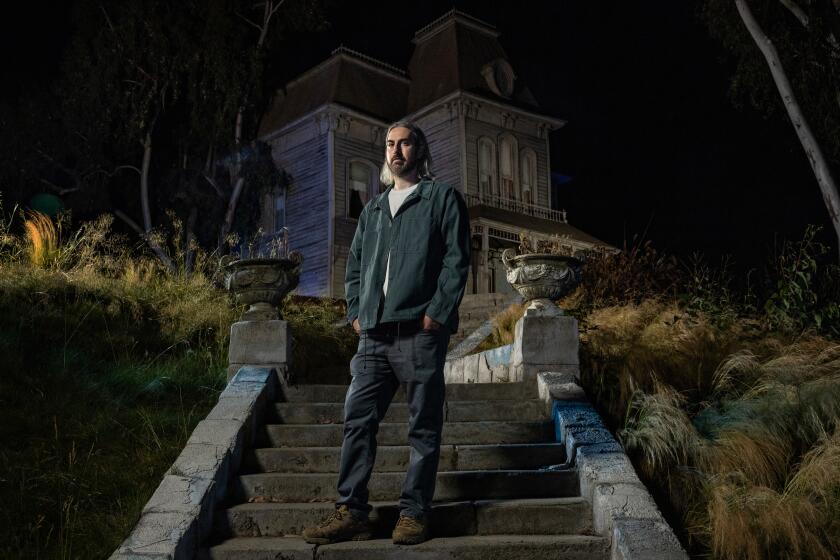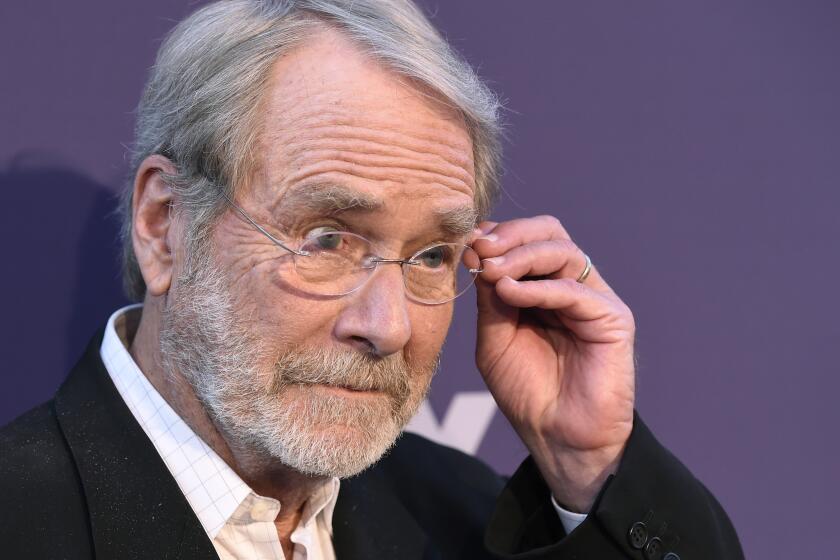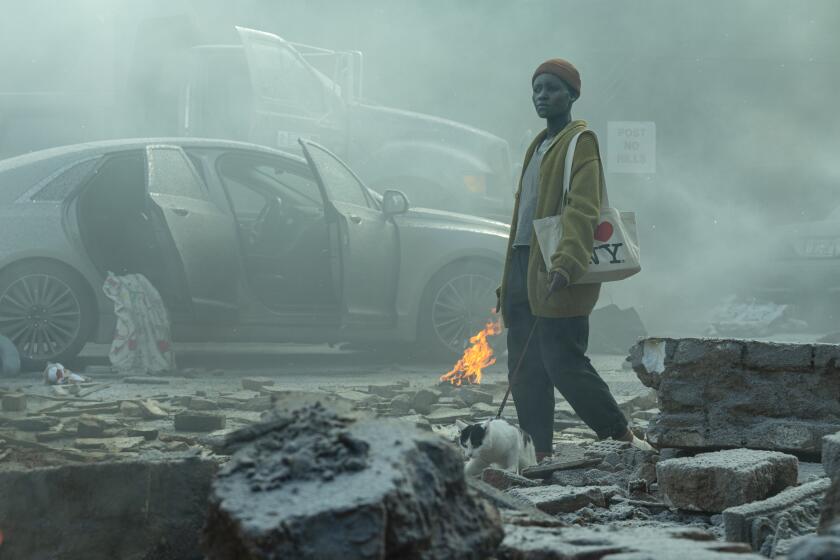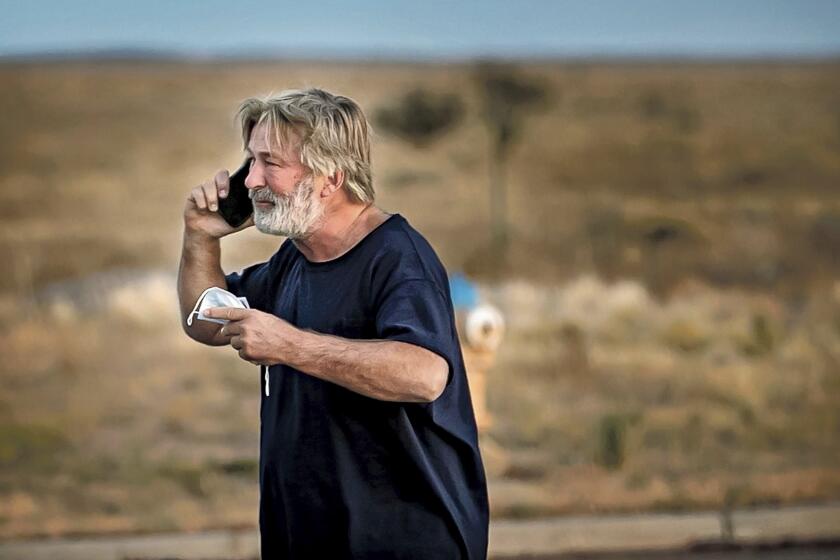Indie Focus: Family drama in ‘The Killing of Two Lovers’
Hello! I’m Mark Olsen. Welcome to another edition of your regular field guide to a world of Only Good Movies.
Only good movies
Get the Indie Focus newsletter, Mark Olsen's weekly guide to the world of cinema.
You may occasionally receive promotional content from the Los Angeles Times.
In a startling conclusion to the series of events — including studios turning their backs on the HFPA and Tom Cruise returning his three awards statues — that began with an investigation by The Times, NBC announced that it would not air the Golden Globes in 2022.
Josh Rottenberg and Stacy Perman took a look at what this means to the larger Hollywood awards ecosystem and who may come out ahead. As Matt Damon said recently on the “Today” show, “If they go away, I don’t think anybody’s really going to lament that. I don’t think the world needs to mourn the death of an awards show.”
However, veteran awards publicist Tony Angellotti said, “I’m hard-pressed to envision any winners as a result of the Golden Globes’ demise. It doesn’t necessarily signal higher ratings for other awards shows. Marketers of movies and broadcast shows lose. Potential nominees lose. Ancillary businesses lose, including media. The city of Los Angeles loses.”
We like to think we are platform agnostic around here, excited to see good work wherever we find it. So when a filmmaker like Barry Jenkins makes a work like his new 10-hour adaptation of Colson Whitehead’s “The Underground Railroad” for Amazon, it is nothing but a positive. The story of a runaway slave (Thuso Mbedu) on a perilous journey to freedom is imminently essential viewing.
As Lorraine Ali wrote in her review of the series, “Jenkins is renowned for his nuance, subtlety and meditative silences, and those qualities transfer to television, with each episode of the series resembling a short film — beautiful cinematography, carefully considered locations, meticulous sets and wardrobe.
“And thanks to Jenkins’ steady hand, his knack for keying in on his characters’ humanity no matter their circumstances, the combination of harsh reality and wild fantasy that could have easily derailed this train — reminiscent of ‘Watchmen,’ which asked us to revisit the Tulsa Race Massacre of 1921 — stays firmly, often unforgettably, on track.”
Greg Braxton interviewed Jenkins, who spoke of the difficulty of depicting the violence and trauma of slavery, saying, “In the polling of my friends, they said, ‘I don’t think you should make this show. I don’t think the world is ready for this.’ But I don’t think the country will ever be ready to look at images from this time. And yet, all you’ve heard for four years was ‘Make America Great Again.’ In hearing that, there has got to be some element of willful ignorance or erasure of all of the things that America has done, particularly when it comes to people who look like me. So if not now, when?”
Enjoying this newsletter? Consider subscribing to the Los Angeles Times
Your support helps us deliver the news that matters most. Become a subscriber.
‘The Killing of Two Lovers’
Written and directed by Robert Machoian, “The Killing of Two Lovers,” is an intense domestic drama set in a small town where a volatile man (Clayne Crawford) who is separated from his wife (Sepideh Moafi) struggles with moving on with his life, even as she is already seeing someone else. The film is playing in limited theatrical release.
For The Times, Justin Chang wrote, “The possibility of violence nonetheless hangs over every stark frame of ‘The Killing of Two Lovers,’ a dramatically spare, formally arresting story about a marriage that’s fallen on rough times. That title — whose menace lingers like a bad dream even after the immediate threat has been neutralized — suggests an inexorable end, a point of no return. But the movie itself, a sterling piece of American realism written and directed by Robert Machoian, is somehow both taut and open-ended. Its swift 84-minute running time and nearly square-shaped images may initially suggest a sense of entrapment, but nothing about these characters and their spare, bruisingly sad story feels obvious or overdetermined.”
For the New York Times, Nicolas Rapold wrote, “You never know when something in the air might tighten and snap, primed by a sound design that evokes creaking timber and phantom door slams. Machoian (who co-directed “God Bless the Child”) suggests that a single day of experience can cover the worries of wrangling youngsters, the ache of troubled romance, and the wildest rage. Accepting David’s murderous urges, the film lands on the enduring mystery of marriage’s bonds.”
For IndieWire, Eric Kohn said the film “reinvents the clichés of the dysfunctional family drama by making them thrilling to watch.” He added, “And by its last, ‘The Killing of Two Lovers’ leaves us with an open question: What did we just watch? Is David an irredeemable monster or a lost soul who deserves his second chance? Working through that ambiguity, ‘The Killing of Two Lovers’ makes it clear that nothing is so simple. Fighting through David’s confusion, ‘The Killing of Two Lovers’ makes it possible to empathize with his situation even as it leaves open the possibility that he might be a lost cause. It’s a rare kind of movie magic to wrestle through this mess of a man and realize that the mysterious nature of his fate proves the only natural outcome, because no simple ending can do justice to a life bereft of easy answers.”
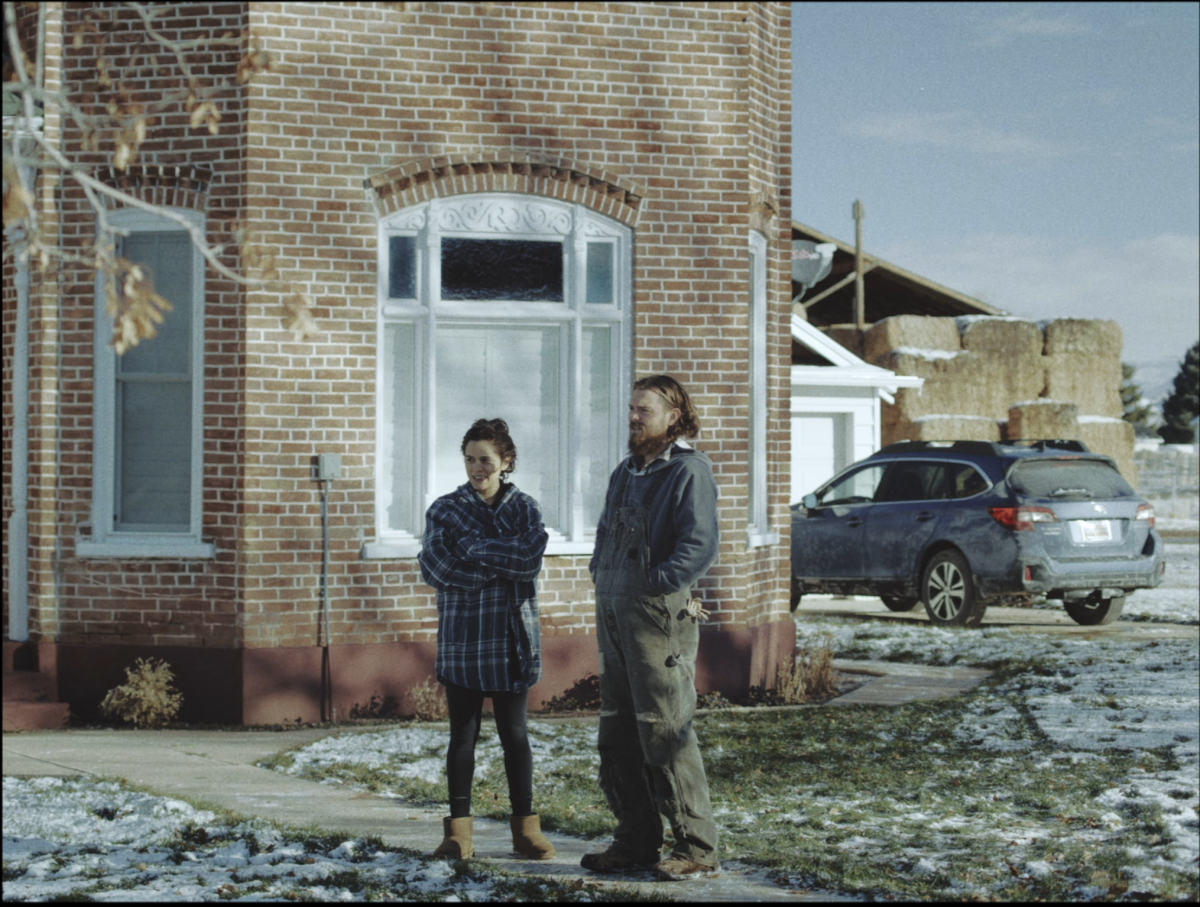
‘Those Who Wish Me Dead’
Directed and co-written by Taylor Sheridan, “Those Who Wish Me Dead” stars Angelina Jolie as Hannah, a Montana firefighter, who tries to protect a young boy (Finn Little) from a pair of hitmen (Aiden Gillen and Nicolas Hoult). The film is in theaters and streaming on HBO Max.
For The Times, Jessica Kiang declared Jolie “a great action movie star who has never been in a great action movie,” while adding, “this is what you get with an action-drama-hitman-thriller-noir-western-disaster-movie-star-vehicle that isn’t actually any of those things: ‘Those Who Wish Me Dead’ — an enjoyable, absorbing, characterful testament to shuffling the whole deck of genre conventions, and then politely setting it on fire.”
For Vulture, Angelica Jade Bastién wrote, “‘Those Who Wish Me Dead’ surprised me. The neo-Western inflected work is a lean, engrossing, action-packed shot of adrenaline that is striking in its aesthetic decisions and boasts some exceedingly fun turns from its actors. Most important, it proves once more why Jolie is a star. Some of the most affecting compositions in ‘Those Who Wish Me Dead’ study the planes of this famous face, charting the ways it can communicate yearning, sorrow, and a devil-may-care destructiveness with clear-eyed sincerity.”
For the AP, Lindsey Bahr wrote, “‘Those Who Wish Me Dead’ doesn’t hold up to much scrutiny. There are too many threads left dangling and characters left unexplored, including Hannah herself. … And yet, it’s an effective and watchable chase film that keeps you on the edge of your seat enough to make it worthwhile. And it’s a great breakout role for Medina Senghore, who gets to play a kick-butt survival expert who’s also six months pregnant. It’s just not a film you’re going to be thinking much about five minutes after it ends.”
For rogerebert.com, Sheila O’Malley wrote, “This is all potentially interesting stuff, and it’s right in Jolie’s wheelhouse. She’s tough but wild, strong but vulnerable. She is drawn to playing broken people who find their resilience. … Jolie can be a divisive figure, as most individualists are, and therefore it’s always interesting to see the projects she lends her talents to. It’s been some years since Jolie did an action movie, and she carries the center of ‘Those Who Wish Me Dead.’ Unfortunately, it’s a film with no real center.”
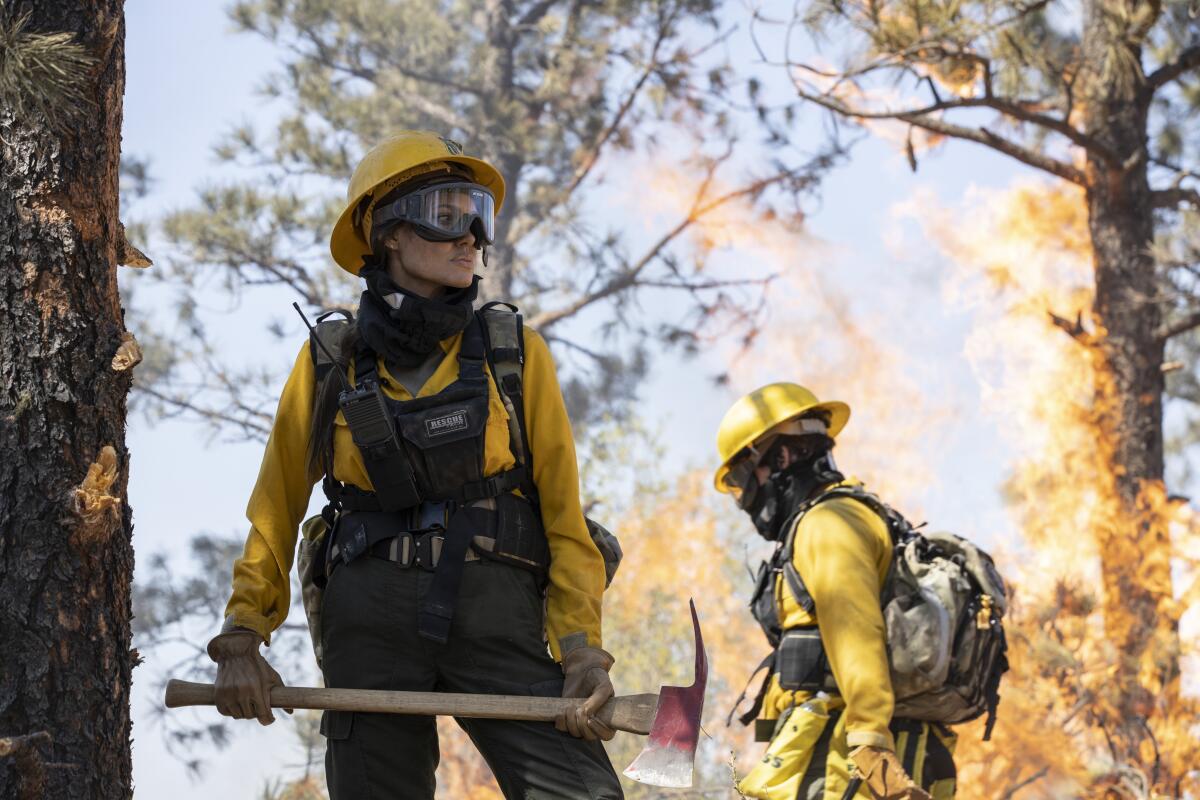
‘There Is No Evil’
Written and directed by Iranian filmmaker Mohammad Rasoulof, “There Is No Evil” was made in secret as the filmmaker is still officially banned from making movies. The movie is an anthology of four stories surrounding the death penalty. The film is playing selected Laemmle theaters and Laemmle virtual cinema.
For The Times, Robert Abele wrote, “The resulting film, however — which took the top prize at the Berlin International Film Festival last year, and is unsurprisingly banned in Iran — betrays no signs of something furtively made, like a guerrilla-style missive. In its elegantly photographed, classically told and acted mix of domestic scenes, bucolic settings, and character drama, it could sit right alongside a Hollywood epic or arthouse drama on a double bill. But when juxtaposed against a history of Iranian cinema that has often relied on child-centric allegory and non-specific narrative to make its societal critiques, ‘There Is No Evil’ practically blisters with the intensity of specifically living in Iran as it exists now.”
For The New Yorker, Richard Brody wrote, “The four segments of the Iranian director Mohammad Rasoulof’s passionate, mournful drama — which he filmed clandestinely — detail the horrors of capital punishment as practiced in his country. … The rest of the film depicts the immense personal burdens borne by a naïve young soldier who crosses the line from duty to collaboration, and by a courageous one whose secrets threaten to destroy his family. Rasoulof’s aesthetic is plain and practical; his sense of drama has the revelatory power of documentary.”
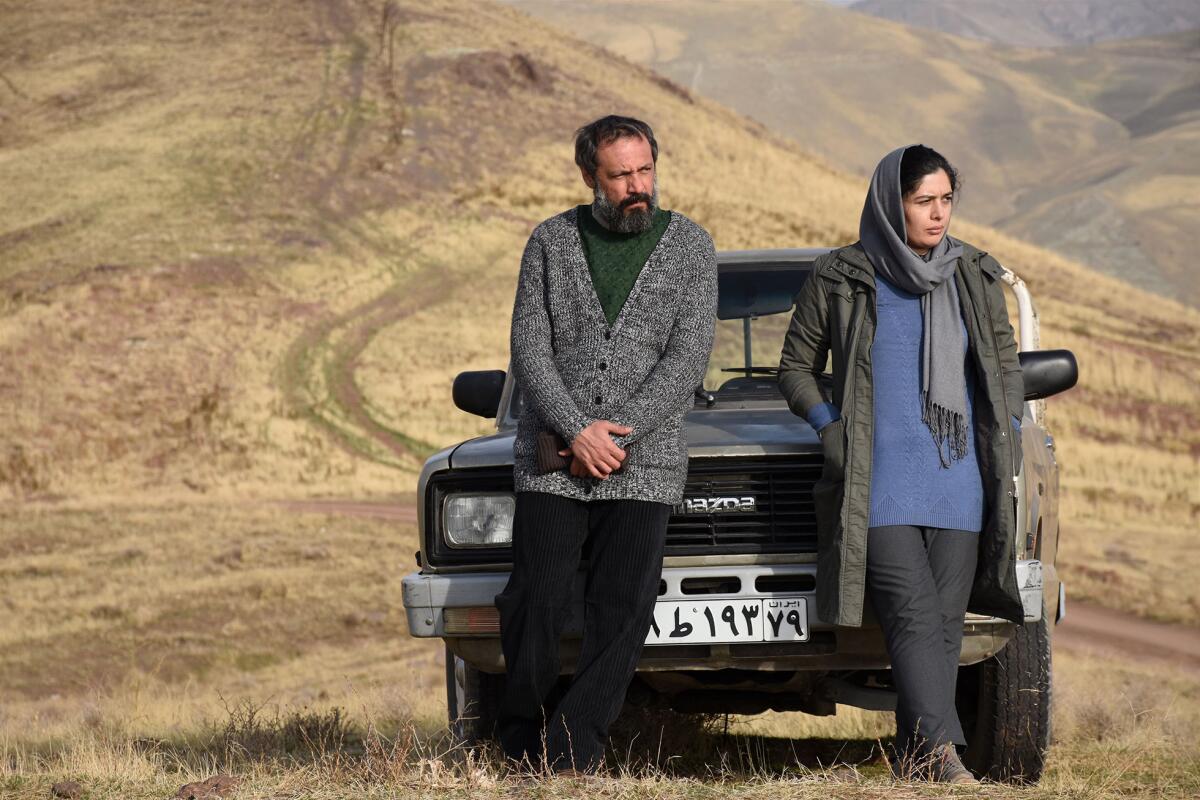
Only good movies
Get the Indie Focus newsletter, Mark Olsen's weekly guide to the world of cinema.
You may occasionally receive promotional content from the Los Angeles Times.

